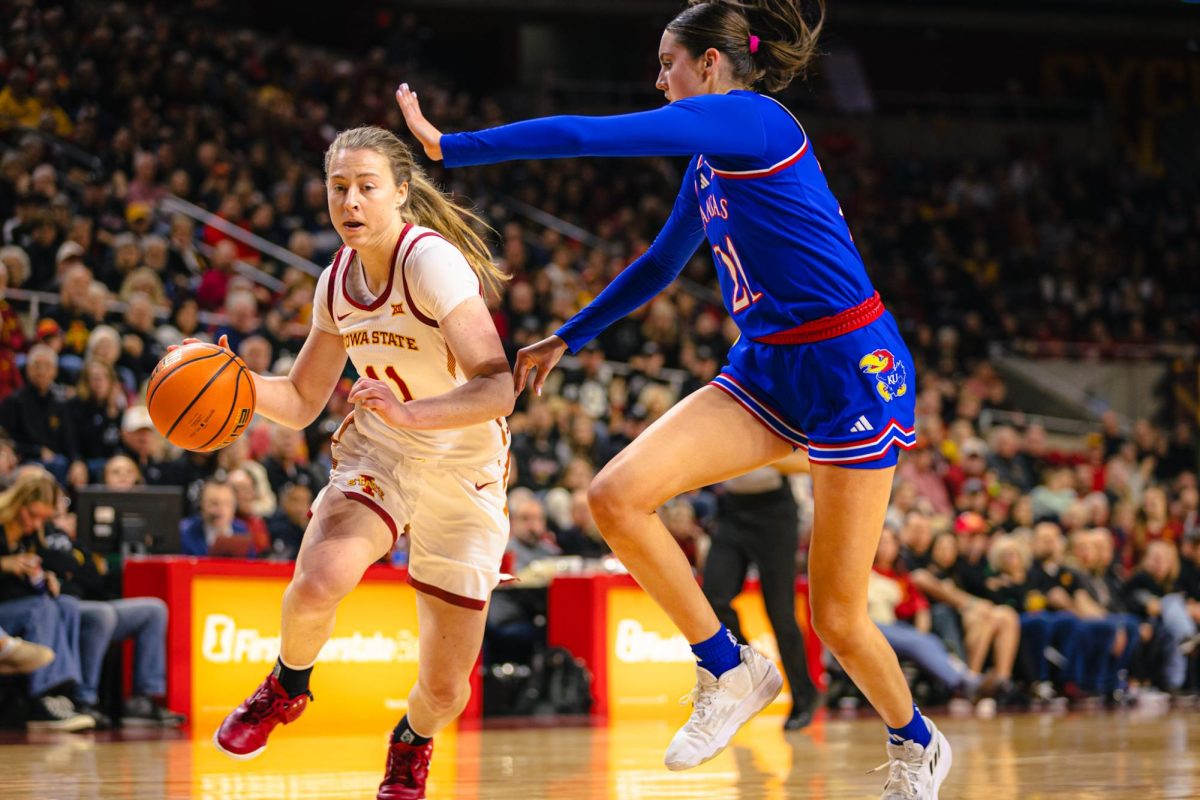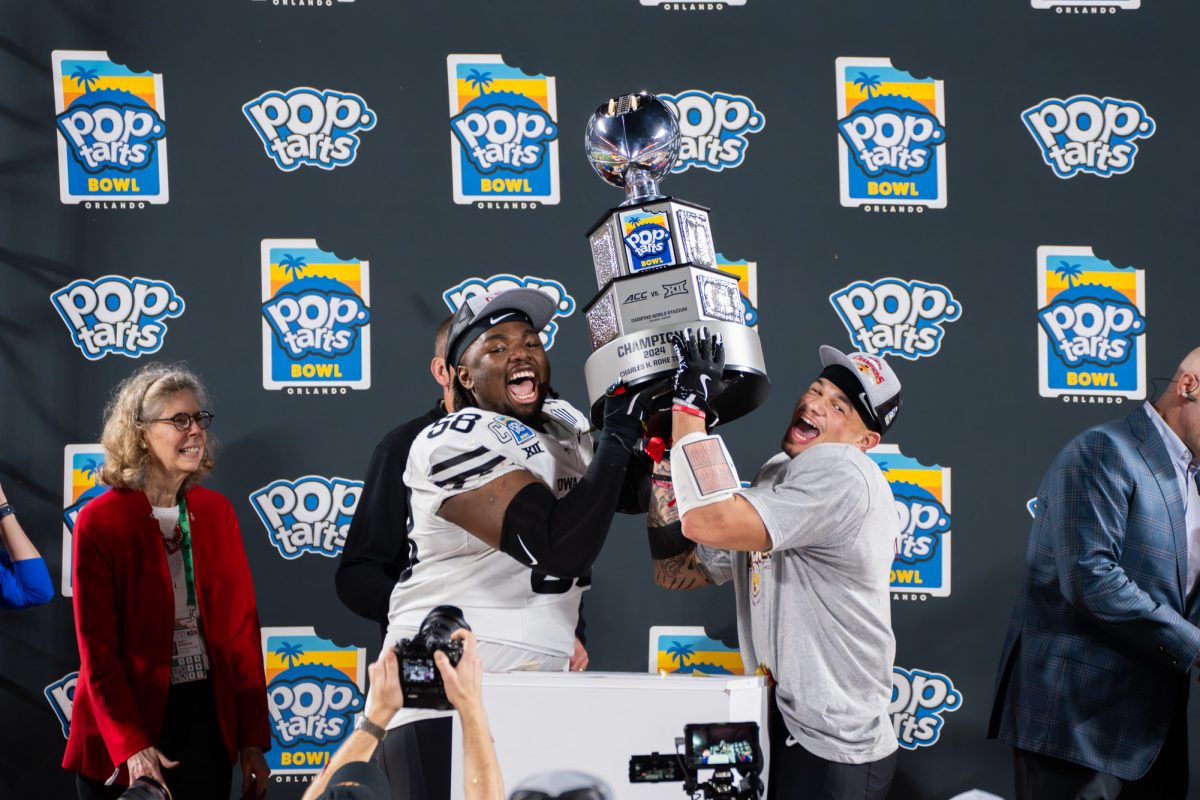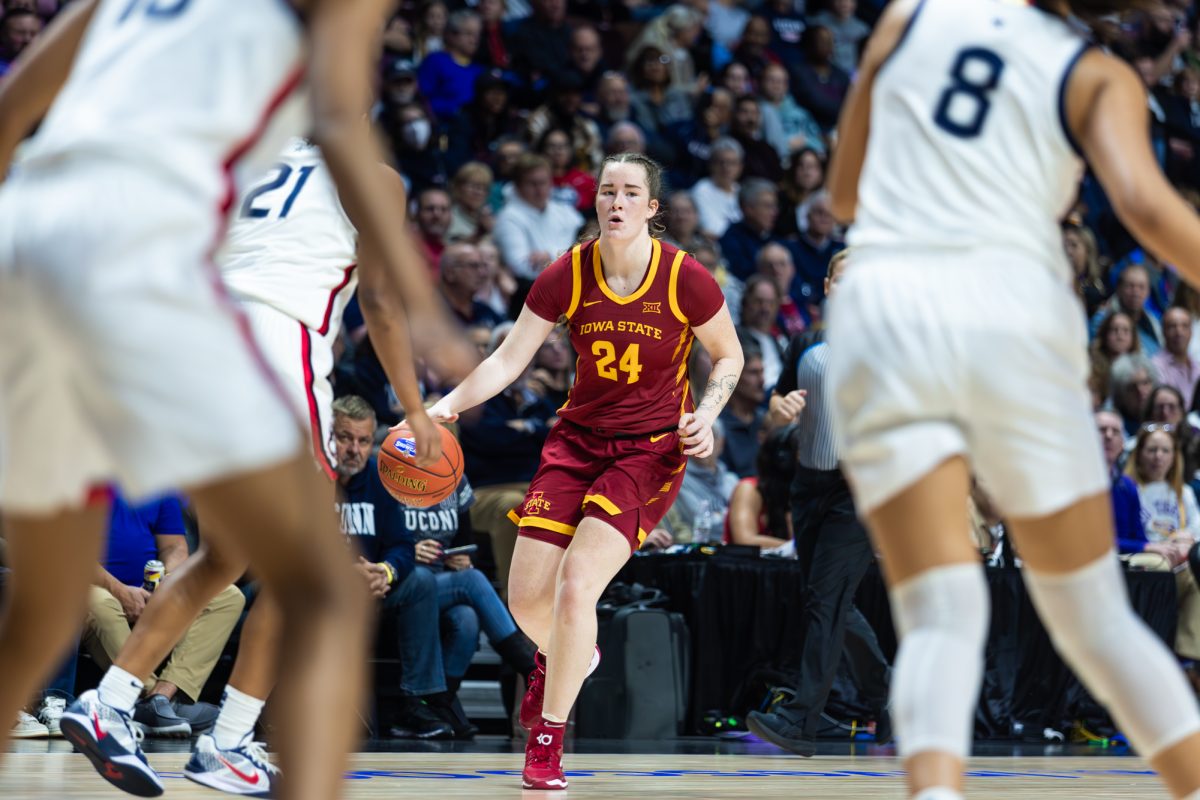Wiki-credibility?
April 9, 2007
It has more than 5.3 million articles in more than 100 languages making it the largest encyclopedia ever assembled. But just how credible is this encyclopedia?
Geoffrey Sauer, assistant professor in English, said he had a student go to a wind farm in Northern Iowa and count how many windmills there were. That student’s number was one higher than what Wikipedia had listed.
Nevertheless, her number contradicted that of a published work, so the student’s edit was reversed.
“Wikipedia is a wonderful example of both the great possibilities of the Internet and the need to be cautious,” said Barbara Mack, associate professor of in the Greenlee School of Journalism and Communication.
“Because it’s so open, that information can be slanted or manipulated.”
David Saldana, adjunct associate professor in the Greenlee School of Journalism and Communication, said he has had several students citing it and, “decided a blanket policy had to be issued.”
“[Wikipedia] is simply not reliable,” Saldana said. “You need a more rigorous investigation. It has citations, so use the citations.”
Saldana said trusting Wikipedia would “be like watching an old cowboy movie and thinking you now know about the Old West.”
“Anyone can call themselves an expert. Material is unreliable unless it has been peer reviewed by [people who are knowledgeable within the general area].” said Ruth MacDonald, professor and chairwoman of the department of food science and human nutrition.
In February, the history department at Middlebury College in Vermont decided to ban citing Wikipedia as a source for research by a unanimous vote.
“I do not allow any encyclopedia for any research paper,” said Charles Dobbs, professor and chairman of the department of history.
Dobbs explained Wikipedia is simply an online encyclopedia, and all encyclopedias, such as Encyclopedia Britannica, are not allowed for cited research.
“They have already written the summary. You should read the magazines, newspapers, maps, etc. Otherwise you shortcut the process,” Dobbs said.
“Wikipedia is not bad. For background it’s fine, but not as a citable resource or footnote.”
Could there be a policy like Middlebury’s at Iowa State?
Mack explained the highest up a ban on using Wikipedia could be is a department by a majority vote of the faculty.
No dean or university official could make the move to ban Wikipedia within one of the colleges or the university.
Saldana said he would not support a ban on Wikipedia in the Greenlee School.
“I would oppose the policy,” Saldana said. “I would take a stand on academic freedom. It would not be wise to surrender autonomy.”
Student opinion has stood mostly against a classroom ban.
Ryan Kincade, freshman in engineering, said he does not like the idea of being barred from using it in class assignments and papers.
“I have used it once for a physics paper,” he said.
Jacob Kaiser, junior in psychology, said he thinks Wikipedia is “fairly reliable.”
“I do not agree with limitation,” Kaiser said. “A professor can limit its use, but it strikes me as arbitrary. [A blanket policy is] the same as in high school when a teacher said you had to use three books as resources.”
Kaiser also said he has cited Wikipedia on more than one occasion.
Sauer said, “There is plenty of information there, but Wikipedia is never the end of information. Knowledge in studies – say science, is done by research. We are still learning and it’s constantly changing. Wikipedia is trying to keep up with it.”





